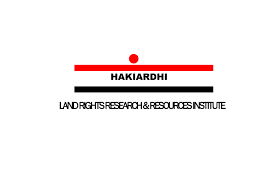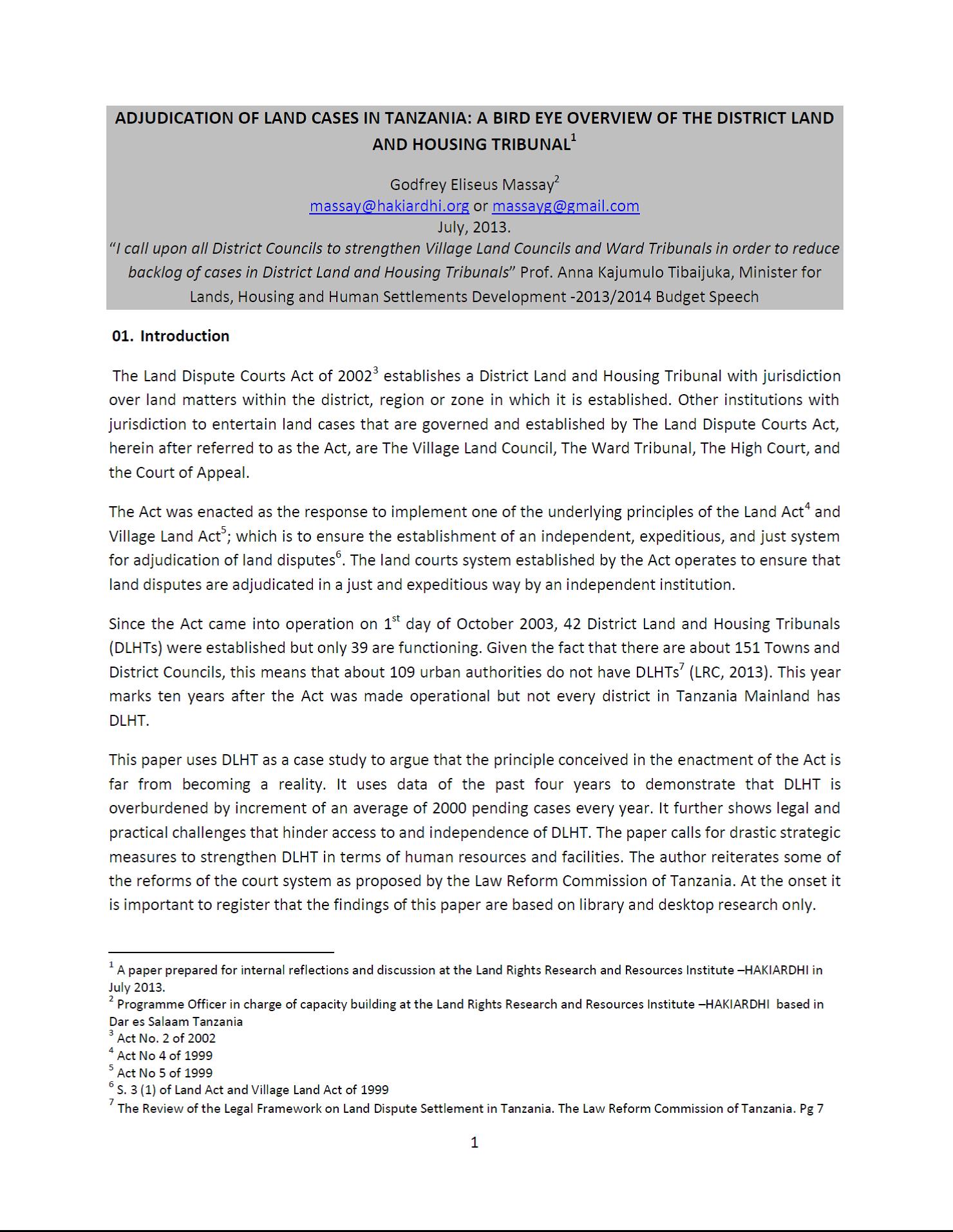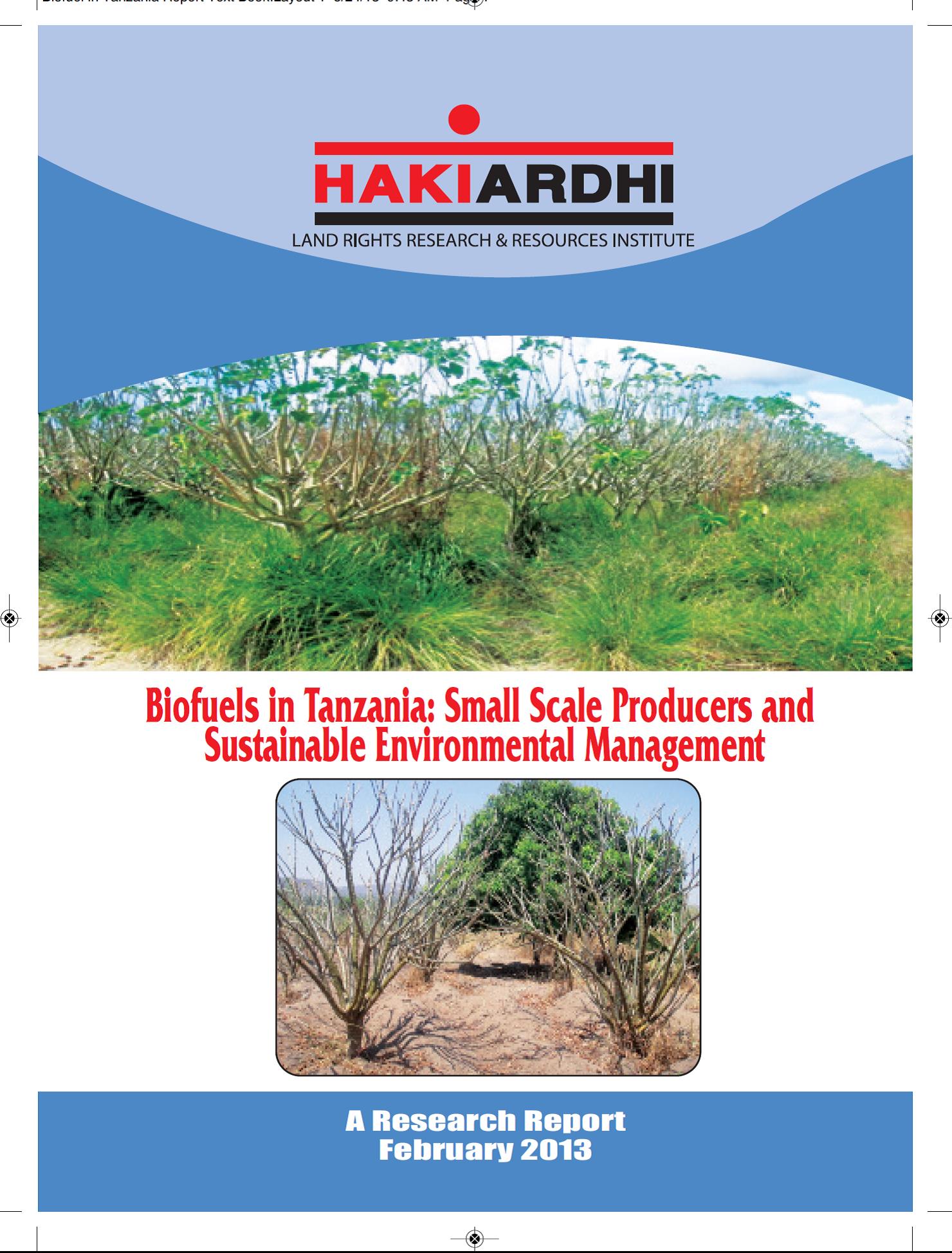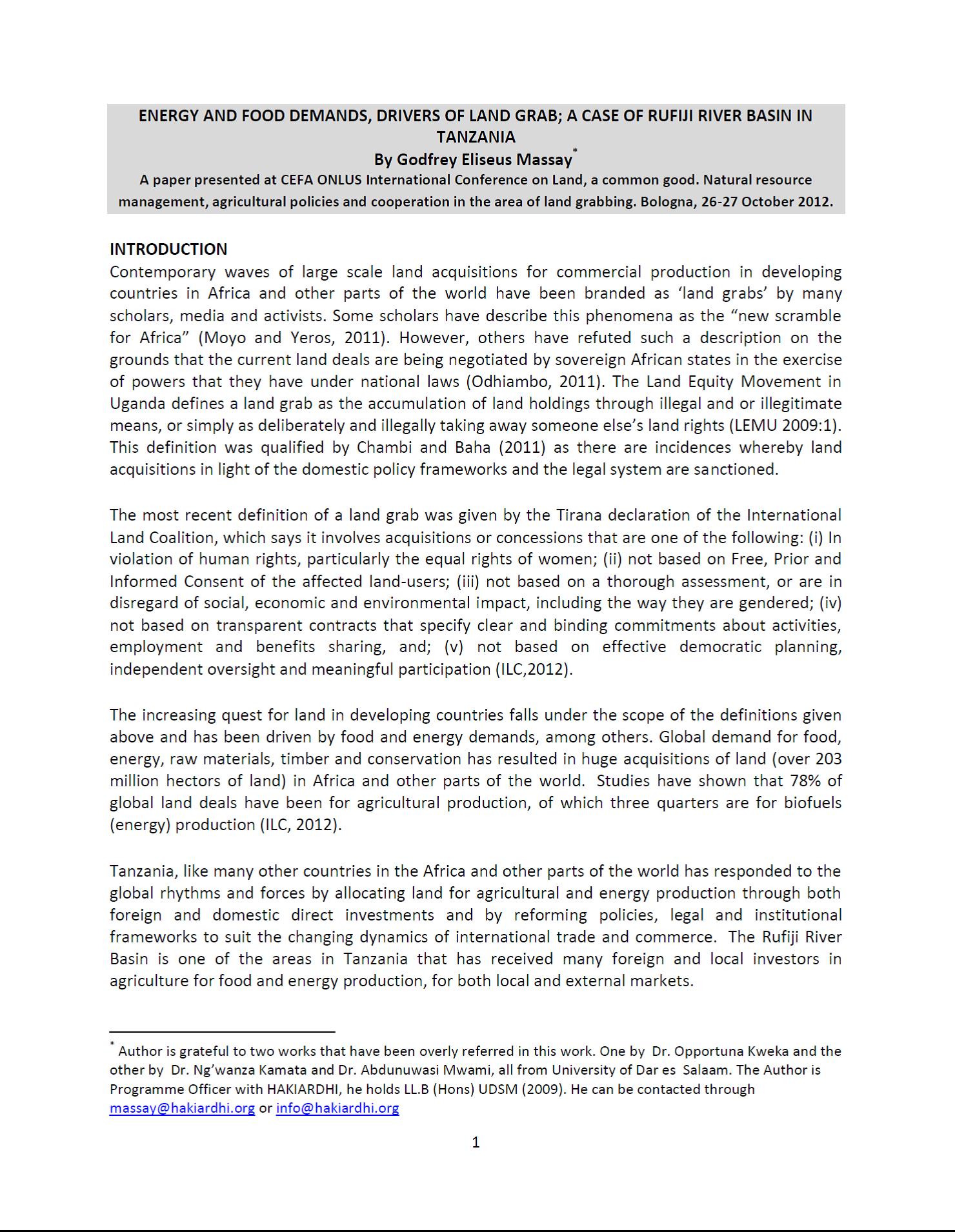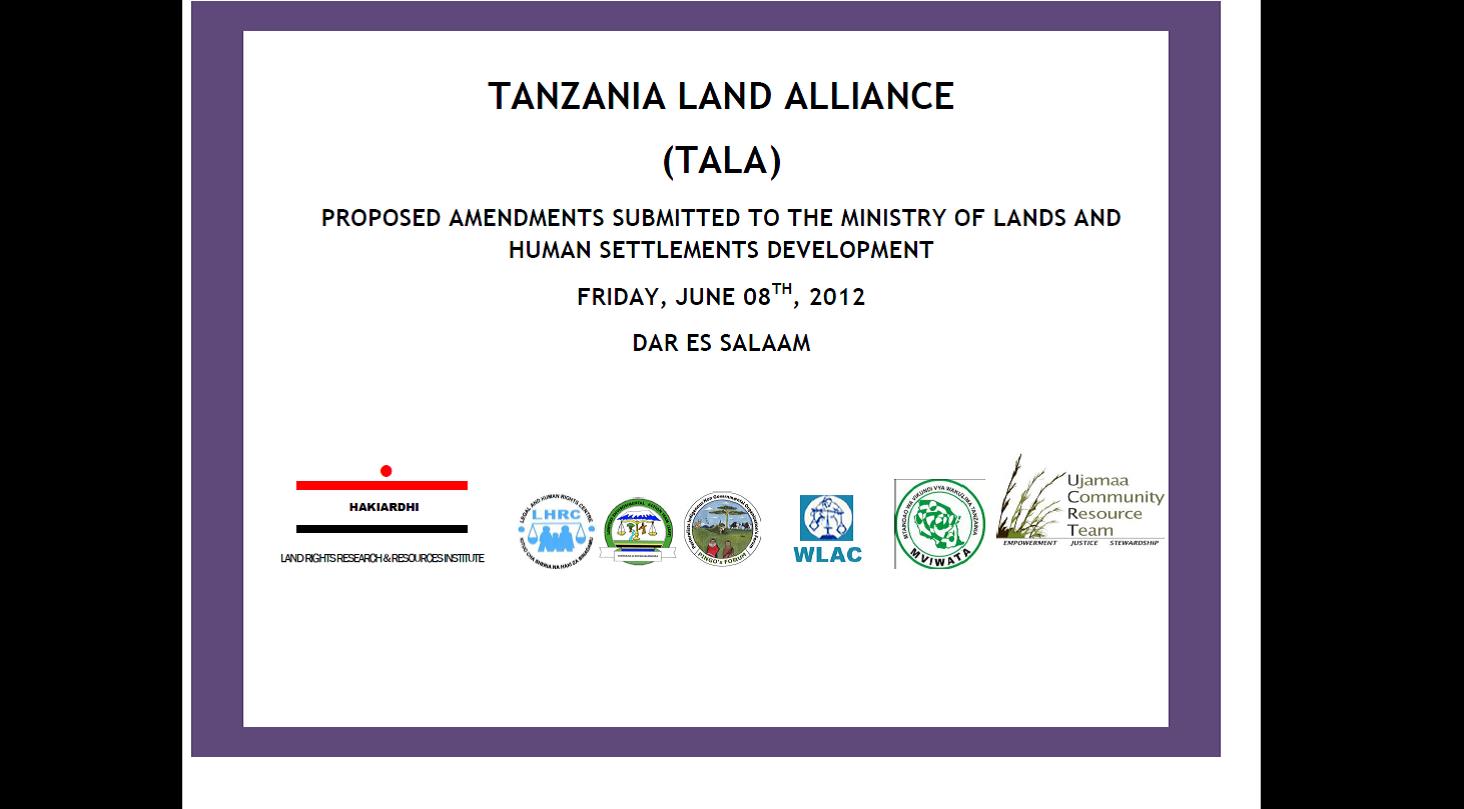Focal point
Location
The Land Rights Research & Resources Institute was founded in 1994 and registered as a non-governmental not-for profit company limited by guarantee under the Companies Ordinance, Chapter 212 of the laws of Tanzania.
The Institute was established out of the need to generate and sustain a public debate and participation, particularly where it matters in villages on issues of land tenure.
It is the institute’s belief that such debate will be better informed if. There is a recognition of indigenous systems of land tenure knowledge and experiences, a will and capacity to research into these and thus generate more systematic knowledge of the same; and an institutional arrangement independent of the state system to generalize local knowledge and experiences horizontally between and among village committees thereby producing a corpus of a truly national system of knowledge on land relations.
VISION
Land Rights Research and Resources Institute envisages a socially just and equitable land tenure system in which all groups in the society and especially the rural based small producers are guaranteed security of tenure, access and ownership to land and other means of their livelihood.
MISSION
HAKIARDHI's mission is to promote and ensure realization of the rights to land of about eighty percents of the rural based communities who are mainly small land holders and producers.
Members:
Resources
Displaying 6 - 10 of 85Adjudication of Land Cases in Tanzania: A Bird Eye Overview of the District Land and Housing Tribunal
This paper uses District Land and Housing Tribunal (DLHT) as a case study to argue that the principle conceived in the enactment of the law that established the tribunal is far from becoming a reality. It uses data of the past four years to demonstrate that DLHT is overburdened by increment of an average of 2000 pending cases every year. It further shows legal and practical challenges that hinder access to and independence of DLHT. The paper calls for drastic strategic measures to strengthen DLHT in terms of human resources and facilities.
Biofuels in Tanzania: Small-Scale Producers and Sustainable Environmental Management
The purpose of this study was to assess the bio-energy sector in Tanzania and to critically inquire the threats, benefits and opportunities to smallscale producers and sustainable environment management. Based on the terms of references this study focused on areas where land is earmarked or already in use for production of biofuels in Tanzania for both large and small-scale firms. The development of policy of liquid biofuels and other policies in general were examined.
Energy and Food Demands, Drivers of Land Grab; A Case of Rufiji River Basin in Tanzania
Contemporary waves of large scale land acquisitions for commercial production in developing countries in Africa and other parts of the world have been branded as ‘land grabs’ by many scholars, media and activists. Some scholars have describe this phenomena as the “new scramble for Africa” (Moyo and Yeros, 2011). However, others have refuted such a description on the grounds that the current land deals are being negotiated by sovereign African states in the exercise of powers that they have under national laws (Odhiambo, 2011).
Proposed Amendments Submitted to the Ministry of Lands and Human Settlements Development
A comprehensive legal analysis highlighting gaps and recommendations in the four selected land related legislations in Tanzania.
Proposed Amendments Submitted to the Ministry of Lands and Human Settlements Development
A comprehensive legal analysis highlighting gaps and recommendations in the four selected land related legislations in Tanzania.

